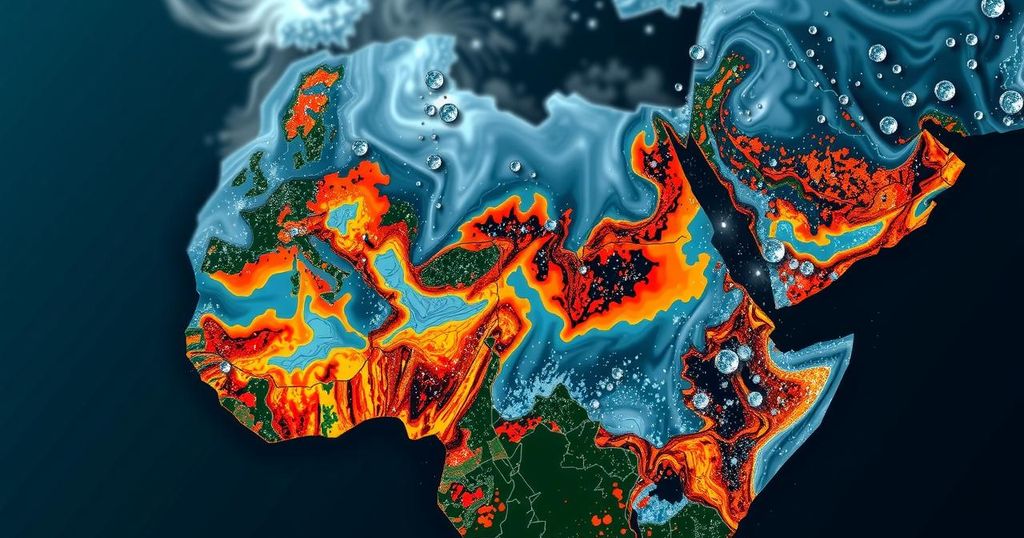The Impact of Climate Change on Recent Flooding in Africa: An Urgent Call for Action
International scientists have concluded that recent devastating rains and flooding in African nations are intensified by climate change, with projections indicating increased frequency of such events in the future. The floods have resulted in significant loss of life and displacement, calling for urgent investment in resilience measures and international support from wealthier nations at the upcoming COP29 negotiations.
Recent research conducted by an international team of scientists has concluded that the severe rains responsible for destructive floods in various African nations, including Cameroon, Chad, Niger, Nigeria, and Sudan, have been exacerbated by anthropogenic climate change. Specifically, the organization World Weather Attribution (WWA) has indicated that the global temperature rise has intensified this year’s seasonal rainfall within the Niger and Lake Chad regions by approximately 5 to 20%. Such extreme precipitation events, they warn, may become commonplace in these areas should global temperatures continue to rise. According to Izidine Pinto, a researcher at the Royal Netherlands Meteorological Institute, “Spells of heavy summer rainfall have become the new normal in Sudan, Nigeria, Niger, Cameroon and Chad.” The floods that struck these nations this year are reported to have resulted in the deaths of approximately 1,500 individuals, displacing more than one million people, as documented by the United Nations Office for the Coordination of Humanitarian Affairs (OCHA). In addition, the intense rainfall has led to the failure of critical dam structures in Nigeria and Sudan. The World Weather Attribution has cautioned that if global warming reaches an increase of 2 degrees Celsius (3.6 degrees Fahrenheit), which is projected to occur by the mid-2050s, these severe rainfall events could be expected to recur on an annual basis in the impacted regions. The organization advocates for increased investment in early warning systems and the upgrading of dams to mitigate the effects of such climate-induced disasters. Further emphasizing the disproportionate impact of climate change on vulnerable regions, researcher Joyce Kimutai from the Centre for Environmental Policy at Imperial College London remarked, “Africa has contributed a tiny amount of carbon emissions globally, but is being hit the hardest by extreme weather.” She noted the crucial role of the forthcoming COP29 climate talks in November, urging richer nations to provide substantial financial support for adaptation and resilience efforts in Africa.
The phenomenon of climate change has increasingly been linked to extreme weather patterns worldwide, manifesting in intense rainfall and subsequent flooding in various regions. In Africa, countries situated near the Niger and Lake Chad basins have become particularly vulnerable to such climate-induced impacts, leading to catastrophic flooding events that not only devastate communities but also compromise infrastructure and safety. As global temperatures rise, the relationship between climate change and extreme weather events grows more apparent, prompting demands for significant international cooperation and funding to address the challenges faced by the most affected regions in Africa.
In summary, human-induced climate change has intensified rainfall events in West and Central Africa, leading to profound humanitarian crises marked by loss of life and displacement. With projections suggesting that such extreme weather could become a recurring issue if global temperatures continue to rise, it is imperative for the international community, particularly wealthier nations, to provide meaningful financial contributions aimed at enhancing climate resilience and preparedness in the affected regions. The calls for investment in climate adaptation strategies will be particularly crucial during the upcoming COP29 climate talks.
Original Source: www.usnews.com




Post Comment